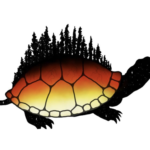Federal Indian Day School Class Action
In March of 2019, a settlement of a nationwide Indian Day School Class Action lawsuit against Canada wasannounced. Itwas then approved by the Federal Court in August that same year. In January of 2020, the settlement wasimplemented,allowing for monetary compensation for Survivors or their descendants who attended federally-run Day Schools.FromJanuary 13, 2020, to July 13, 2022, plaintiffs in the form of Survivors and representatives can fill out andsubmittheir claims for review. Claims are divided into five (5) levels on a harm grid, level one being the leastharmexperienced and therefore requires the least information from the claimant. The claim level increases with theseverityof the abuse and harm experienced, with the highest amount of compensation being provided for level five.Compensationranges from $10,000 to a maximum of $200,000, based on the identified level within the claim. The list of harmlevelsand eligible schools can be found on the settlement website.
Estate Representatives (trustee, administrator, or executor) are able to apply on behalf of a loved one whopassed awayon or after July 31, 2007. It is important to note that this lawsuit is against Canada, and is for federallyfunded andrun Day Schools, therefore provincial schools and other institutions are excluded.
Website and contact information:
https://indiandayschools.com/en/
Residential Day Scholar Class Action
This newly announced settlement was approved by a Federal Court on September 24, 2021. Beginning January 4,2022 andconcluding October 4, 2023, Survivors are able to submit their claims for monetary compensation for specificharmsexperienced as a result of their attendance at Indian Residential Schools as a Day Scholar. This settlement isfor thosewho attended an Indian Residential School but did not spend the night at the school, meaning they were ascholar, butnot a resident of the school. Day Scholars who attended a Residential School between 1920 and 1997 could beeligible fora set compensation payment of $10, 000. Descendants of a Day Scholar who passed away on or after May 30, 2005,couldalso apply on behalf of their loved one. A list of eligible schools is available on the settlement website.
According to the settlement’s website, “The lawsuit asserted that the purpose, operation, and management ofIRSsdestroyed the Class Members’ language and culture, violated their cultural and linguistic rights, and causedpsychological harm.”
https://www.justicefordayscholars.com/resources/faqs/
As of May 20, 2005, it is estimated that somewhere between 12,000-20,000 Day Scholar Survivors were alive. Itisimportant to note that this lawsuit is against Canada only, and therefore only covers institutions developedand fundedby the Federal Government under the Indian Act, meaning provincially-funded schools are excluded from thisparticularsettlement. It is also important to note that Day Scholars can still apply for compensation under thissettlement, evenif they received compensation under the Federal Indian Day School Class Action or the Indian ResidentialSchoolSettlement Agreement. However, they cannot apply for compensation from more than one settlement, for the sameschoolyear.
Day Scholars were typically excluded from the Indian Residential Schools SettlementAgreement, CommonExperience Paymentof 2006, because although they were students, they were not residents of the schools. Therefore, thisSettlement aims toclose the gap of Survivors of Indian Residential Schools who were denied compensation through the IndianResidentialSchools Settlement Agreement.
Website and contact information:
https://www.justicefordayscholars.com/



